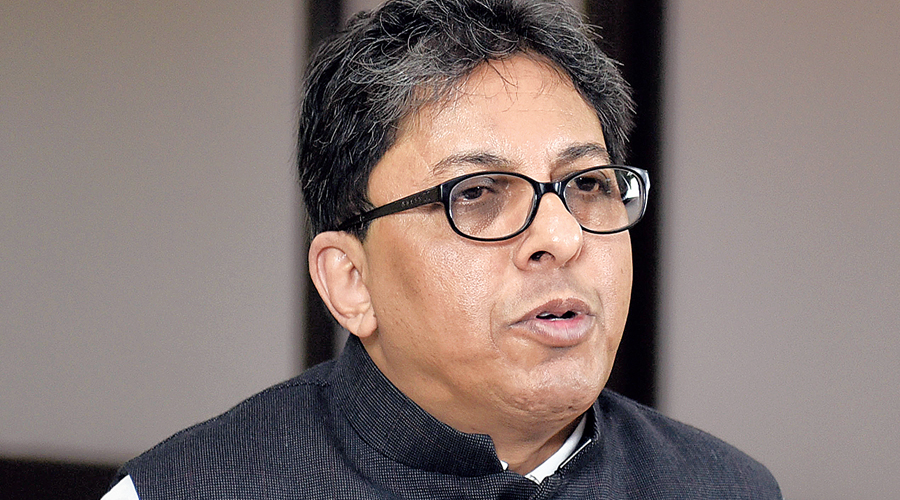Bengal's Partition did not have any one villain, it was the result of a collective sin, a career bureaucrat said on Saturday.
"Bengal's Partition was a tragedy which was collectively manufactured by all of us through our collective sins. The difficulty in the case of Bengal's Partition is that there is no villain who comes to the fore in order to give us a chance of redemption by contrasting ourselves to that dark character. We are all villains, we are all victims," said Alapan Bandyopadhyay, former chief secretary of Bengal.
Bandyopadhyay, currently the chief advisor to chief minister Mamata Banerjee, was a guest speaker at a poetry festival in Kolkata.
CANTO, a four-day multilingual, multicultural travelling poetry festival, is being held in New Delhi and Kolkata from March 15 to 19.
Faculty members from the University of Chicago, along with poets, academics and scholars in India, have come together for readings and extended discussions.
On Saturday, Bandyopadhyay, an alumnus of Narendrapur Ramakrishna Mission and Presidency College (nowPresidency University), was part of a panel thatdiscussed "The Inheritance of Loss: DeprovincializingBengal's Partition".
Avik Chanda, author, columnist, entrepreneur and business advisor and the festival director, Lina Ferreira Cabeza-Vanegas, an assistant professor in the programme in creative writing at the University of Chicago and Alison James, professor of French in the department of romance languages and literature at the varsity, were the other panellists.
"We all realise it was a collective guilt of ours that our land was tragically divided. As a people, we could not stay together. There was no one moment of a dramatic exodus. There was no one moment of bloody swapping of people. It kept ondigging, bit by bit. That slow, tortuous, gradual, cancerous bleeding made us weaker and weaker and we realisedthat we made this tragedy for ourselves through our sins in the past," Bandyopadhyay, author of multiple books, said on Saturday.
There was no redemption since it was a collective wrong, he contended.
He asked the other panellists if the Bengal Partition was comparable with other great historical tragedies or if it was unique in the permanence of a sense of dejection and despair and the "feeling of being uprooted, probably legitimately, and being lost, probably irreversibly".
Cabeza-Vanegas, also an author, said it was both unique and universal.
"It has to be unique to be universal and it can only be universal if it is unique," she said.
She drew a parallel with strife-torn Colombia, the country where she grew up in before moving to the US.
"When you talk about this region, you trade itself in a way. We created our own tragedies. I can relate to that very much. Colombia has not been fighting other countries. We have been fighting ourselves.
"But, I can relate to that far more when I think that as a human species, we haven't been waging war against lions, but against ourselves. The 'us', 'them' and 'we' make it universal. The person inside it makes it personal. So, when we talk about universality, we talk about tragedy. But when we talk about the person, then we talk about poetry," she said.
